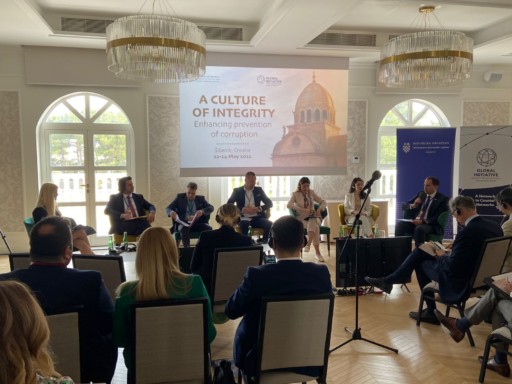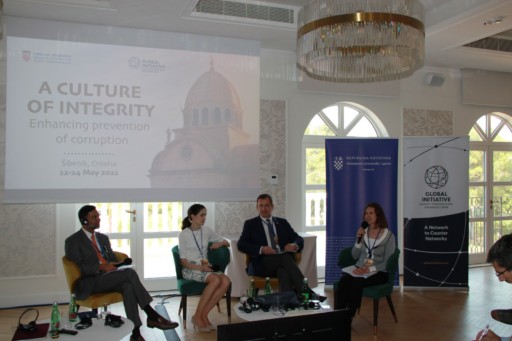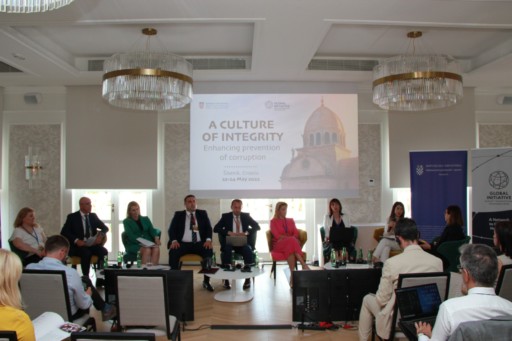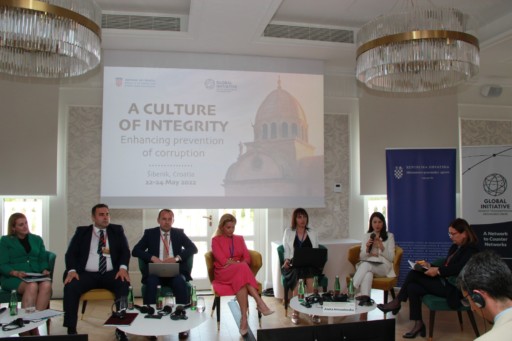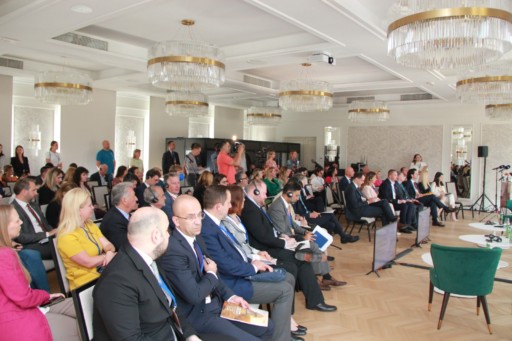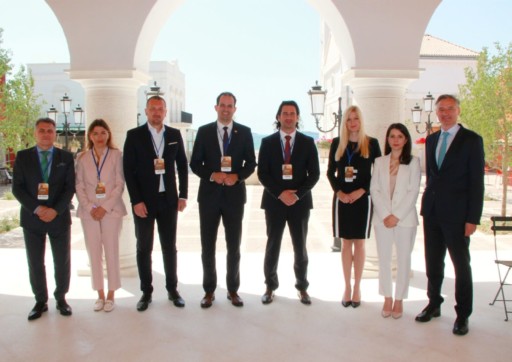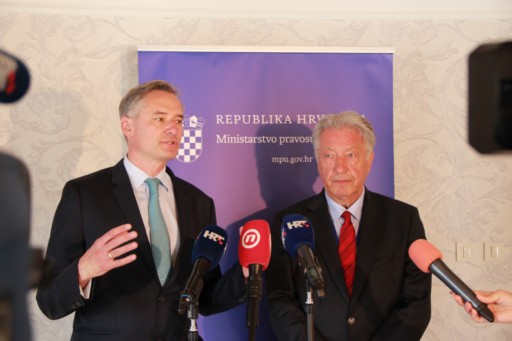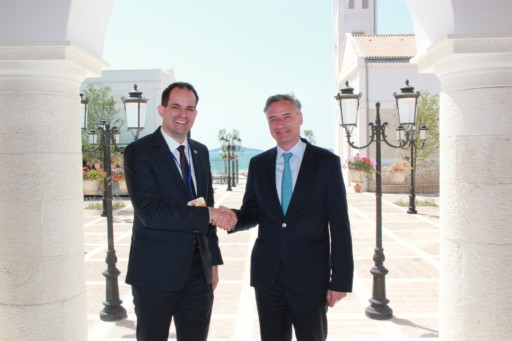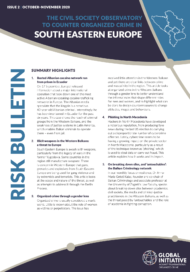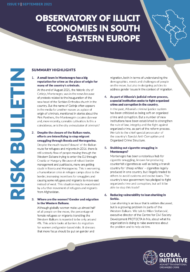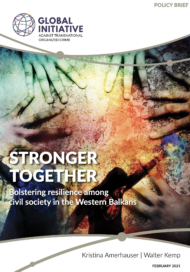Posted on 27 May 2022
A conference in Šibenik, Croatia, brought together ministers of justice from the Western Balkans, directors of anti-corruption agencies and inter-governmental organizations, along with representatives from civil society, to discuss how to prevent corruption and exchange best practices.
The meeting, held on 23–24 May, was co-organized by the Ministry of Justice and Administration of Croatia and the Global Initiative Against Transnational Organized Crime (GI-TOC) with the generous support of the UK government. At the conference, Ivan Malenica, Croatia’s minister of justice and public administration, stressed the need for personal, social and institutional integrity. ‘These three elements must be built on dialogue and cooperation between states, international institutions and civil society,’ he said, noting that Croatia has recently adopted a ten-year strategy to deal with corruption.
Walter Kemp, who leads the GI-TOC’s global strategy against transnational organized crime, underscored the need for civil society and governments to work together to prevent and fight corruption. ‘We are all on the same side,’ he said. ‘We all have a shared interest and a shared responsibility to strengthen a culture of integrity.’
Participants discussed the roles of the state and civil society in promoting a culture of integrity; in what ways can corruption be prevented; how to strengthen regional cooperation; illicit financial flows in the Western Balkans; the potential for social re-use of criminal assets; and how to address “organized corruption” – a symbiosis of organized crime, criminal methods and high-level corruption, which creates a crooked ecosystem that enriches and protects those with access to power. Particular attention was paid to the importance of effectively implementing anti-corruption legislation and education, and awareness raising, as well as codes of ethics for government officials.
GI-TOC senior advisor Uglješa Zvekić highlighted the GI-TOC’s work on corruption in the region as a way forward to address these issues. ‘A culture of integrity means fostering public dialogue related to the promotion of initiatives and legislation for the prevention of corruption,’ he said. He, together with anti-corruption experts from all six Western Balkan countries, highlighted the Global Initiative’s recent and on-going work on corruption issues in the region.
In his closing remarks, Malenica underscored the good collaboration between his ministry and the GI-TOC as well as with other Western Balkan ministers and directors of anti-corruption agencies, and encouraged future cooperation.
‘This meeting was unique because it not only brought ministers of justice from the Western Balkans together, but enabled them to learn from neighbouring countries, such as Croatia, that are now members of the EU,’ said Fatjona Mejdini, director of the GI-TOC’s Observatory of Illicit Economies in South Eastern Europe. ‘It was a rare opportunity for civil society and government officials to exchange views,’ she added.
